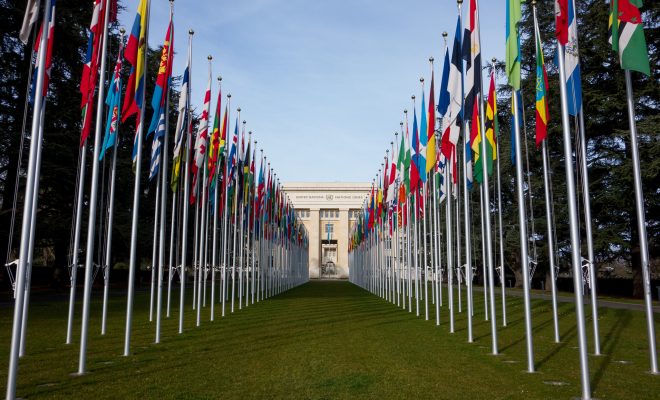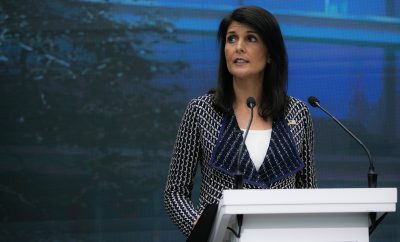 Image Courtesy of [Falcon Photography via Flickr]
Image Courtesy of [Falcon Photography via Flickr]
World
Independent Report Finds U.N. at Fault for 2010 Cholera Outbreak in Haiti
For years, the United Nations has denied any wrongdoing in the cholera outbreak in Haiti that hit the island in October 2010. But after an independent report concluded the U.N. was responsible for the outbreak, the international aid organization on Thursday admitted, at least partially, to its role in bringing cholera to the small Caribbean nation, and promised a “significant new set of U.N. actions.”
The U.N. deployed 454 Nepalese troops to Haiti in 2004 as part of a peacekeeping mission. The troops were stationed at a base near the Meille River. Waste from the base was dumped into the river, and in October 2010, the first cases of cholera were detected. Nearly 10,000 people have since died, with close to 800,000 more, or seven percent of Haiti’s entire population, sickened.
Cholera “would not have broken out but for the actions of the United Nations,” Philip Alston, an NYU law professor, concluded in his independent report sent to the U.N. on August 8. His report pegged the reparations the U.N. owes to the Haitians who were affected by the outbreak at $40 billion. Alston’s report was one of a couple dozen from experts, whose conclusions must be accepted or rejected by the U.N. by the end of the week. The reports will be officially presented in September at the U.N. headquarters in New York.
And while the international aid body hasn’t explicitly accepted or rejected any of the special rapporteurs’–as the independent experts are called–findings, the U.N. secretary general’s deputy spokesman indicated positive steps are being taken. “Over the past year, the U.N. has become convinced that it needs to do much more regarding its own involvement in the initial outbreak and the suffering of those affected by cholera.” the spokesman wrote in an email to The New York Times.
In 2011, the families of 5,000 cholera victims petitioned the U.N. to remedy the cholera situation. The organization’s Office of Legal Affairs said the petitions were “not receivable.” The families decided to sue. But because the U.N. enjoys diplomatic immunity, virtually granting it impunity from potential legal action, it did not send any representatives to court. The case is currently pending in the Second Circuit Court of Appeals in New York.
Mario Joseph, the Haitian human rights attorney who is representing the plaintiffs in that case, called the report, and the U.N.’s response, a “major victory for the thousands of Haitians who have been marching for justice.” Its response so far, besides denying any responsibility for unwittingly initiating the outbreak, is drafting a 10-year, $2.27 billion plan to support the cholera-affected communities, but the plan is severely underfunded at the moment. The U.N. seems on its way to acknowledging its responsibility to ease the epidemic, which is still sweeping through the tiny country. As of March, an average of 37 people perish from cholera each month in Haiti.








Comments